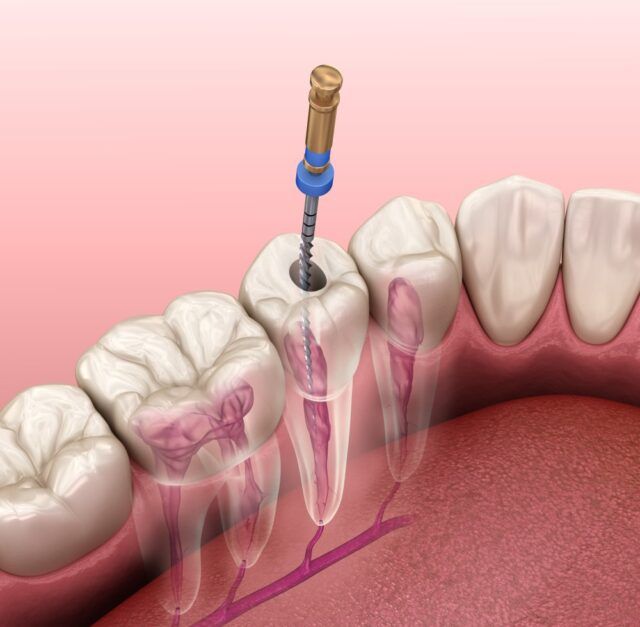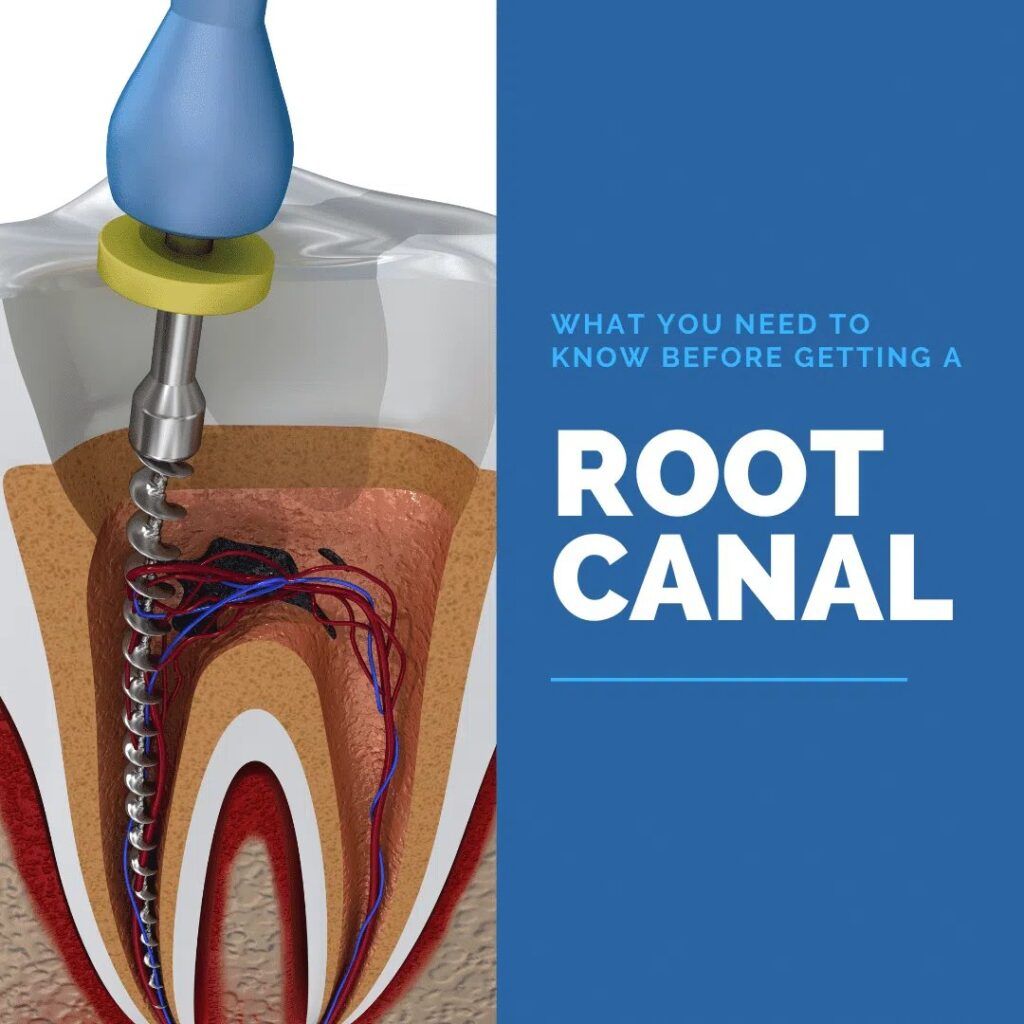If you’re experiencing tooth pain and your dentist tells you that a root canal is necessary, it can be natural to feel anxious. Don’t worry – we’re here to help! In this blog post, we’ll discuss what you need to know before getting a root canal, from the reasons why one may be necessary to what to expect during the procedure. We’ll also talk about how long recovery takes and what you can do to prepare for your appointment.
What You Need to Know:
When a root canal is necessary
Root canals are necessary when the pulp of your tooth becomes infected. The pulp layer is the innermost layer of your tooth and contains blood vessels, nerves, and connective tissue. When this layer becomes infected, it can cause pain, sensitivity to hot or cold temperatures, gum swelling, and more.
Pulp infections can happen due to a number of reasons, including tooth decay, a cracked or chipped tooth, or an injury to the tooth. If left untreated, an infection in the pulp can spread to other parts of your mouth and body and lead to serious health complications.
What to expect during the procedure
During the procedure, your dentist will remove the infected pulp and clean out the inside of your tooth. They will then fill and seal the tooth with a dental crown to protect it and restore its function. Here is what you can expect during a root canal:

- Before starting the procedure, your dentist will use dental anesthetics and possible sedation, if desired. The anesthetics will keep the tooth and surrounding area numb so that you don’t experience any pain during the root canal procedure.
- A small hole is drilled into the top or side of your tooth to access the inside chamber of your tooth. Then, a series of root canal files are fed into this hole and used to remove the decayed tissue from inside the pulp chamber and root canals. This also means the nerve and blood vessels will be removed as well.
- Once the pulp chamber and root canals are empty, your dentist will flush the inside of your tooth with a microbial solution to kill off any remaining bacteria.
- At this point your dentist will get to work restoring the remaining tooth structure. This is done by first filling the inside of the pulp chamber and root canals with a rubber-like material known as gutta percha. Then, the access hole will be filled in with composite resin. Once the inside of the tooth has been restored, then the outside will be restored using a dental crown.
Why a dental crown is necessary
Many people who have a root canal wonder why it is necessary to have the affected tooth restored using a dental crown. A dental crown is a tooth-shaped cap that fits over the entire visible portion of the tooth.
Dental crowns are necessary after having a root canal because the tooth will become weaker and more brittle after the procedure. The dental crown will help to protect the tooth from further damage and restore its function. Dental crowns can also prevent bacteria from entering the tooth and decaying the remaining tooth structure.
How long does recovery take?
Most people report that the recovery process after a root canal is relatively painless. You may experience some mild discomfort and sensitivity as a result of inflammation, especially if you were in pain before the procedure, but this can be managed with over-the-counter pain medication. It’s important to maintain your oral health during the healing process, so make sure to brush and floss regularly, and follow your dentist’s post-treatment instructions.
Tips to Prepare for a Root Canal:
Maintain your health
It’s important to be in good overall health before any dental procedure. If you have any underlying medical conditions, make sure to discuss them with your dentist ahead of time.
It is also recommended that you try eating healthy in the days or weeks leading up to your root canal. This is because it can take some time to eat properly after a root canal, so you want to get as many nutrients into your body as possible before the procedure to help you heal faster.

Pick up prescriptions ahead of time
If your dentist prescribes you any medication to take before or after the procedure, make sure to pick it up ahead of time. This is especially important when your dentist instructs you to start taking antibiotics before your appointment time. It is also important to pick up any pain medications before your appointment as well so that you have them ready as soon as you need them. This will save you from having to run errands after having a root canal.
Freeze ice packs for pain
To help with any discomfort you may experience after the procedure, freeze some ice packs ahead of time. This is another task that you should do before your root canal procedure. That way, the ice packs will be good and frozen when you need to use them. It is recommended to freeze a few different ice packs so that you can easily rotate them out when one starts to melt.
Ask questions
If you have any questions about the procedure, don’t hesitate to ask your dentist. They want you to be fully informed and comfortable before undergoing a root canal. Not only that, but post-treatment care is often a large part of treatment success, so it is important that you fully understand what is expected of you after your procedure and that you are able to do these things.
In Conclusion
We hope this blog post has helped to answer some of your questions about root canals and helped you to prepare for any future root canal procedures that you may need. Overall root canal procedures are highly beneficial and routine dental procedures that help you restore your oral health after getting a pulp infection. If you have any additional questions, please don’t hesitate to contact us at New Teeth Chicago. We’re here to help!

